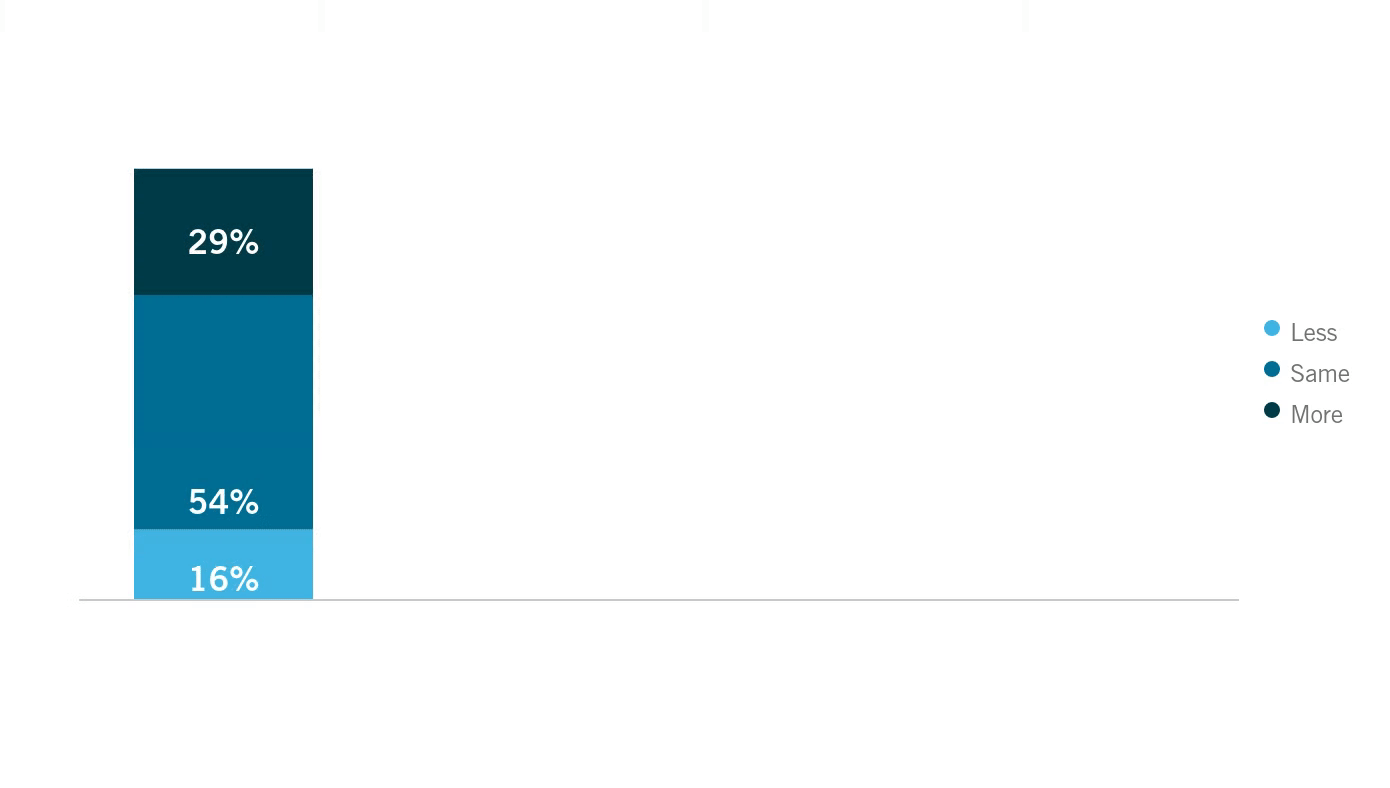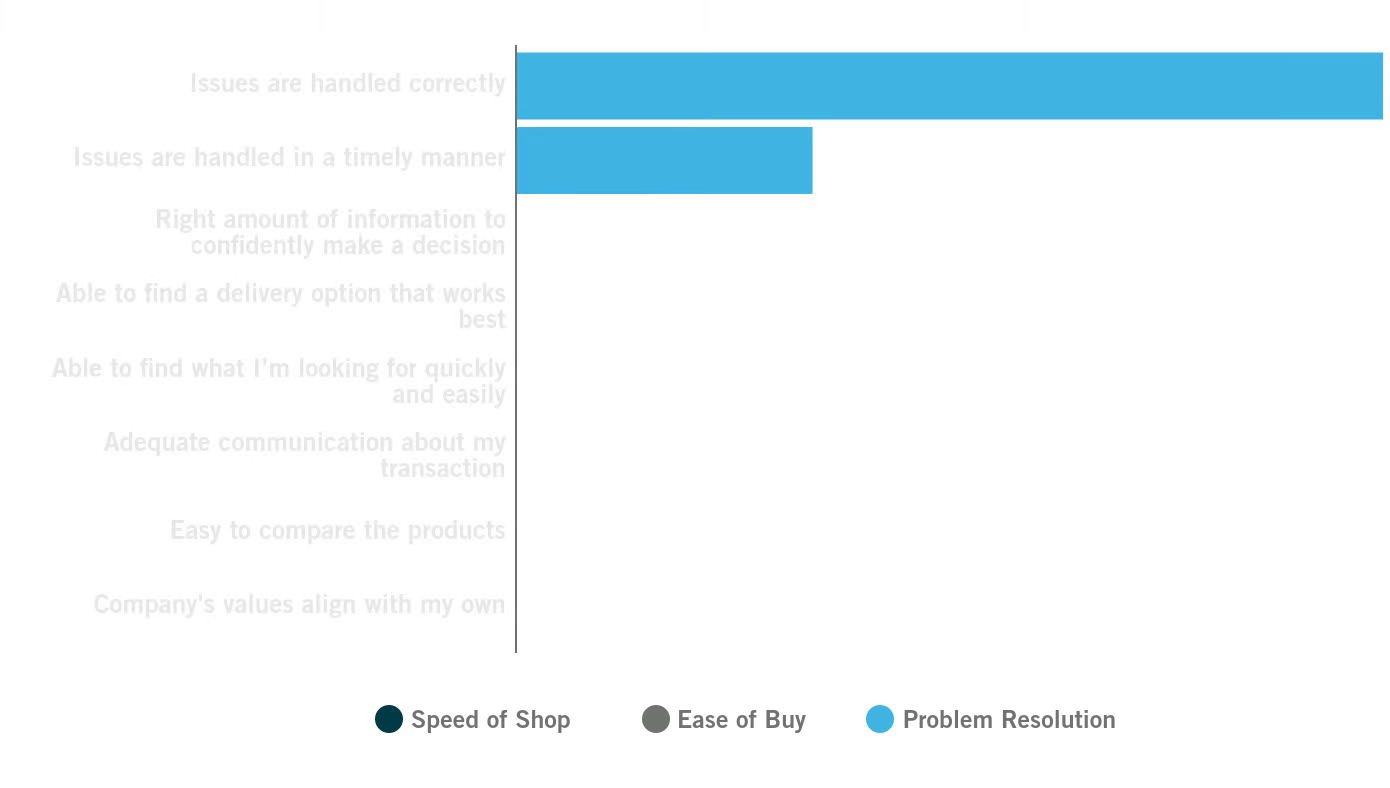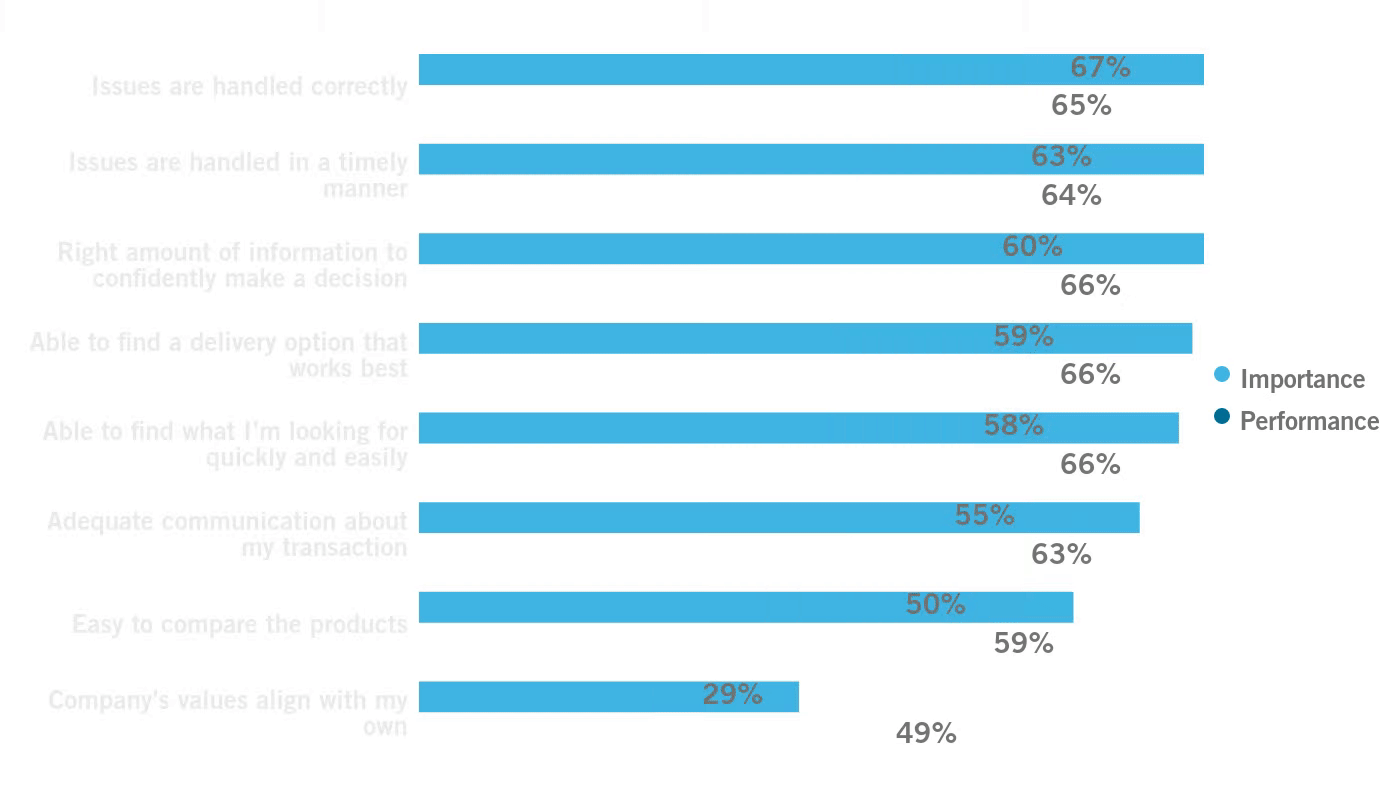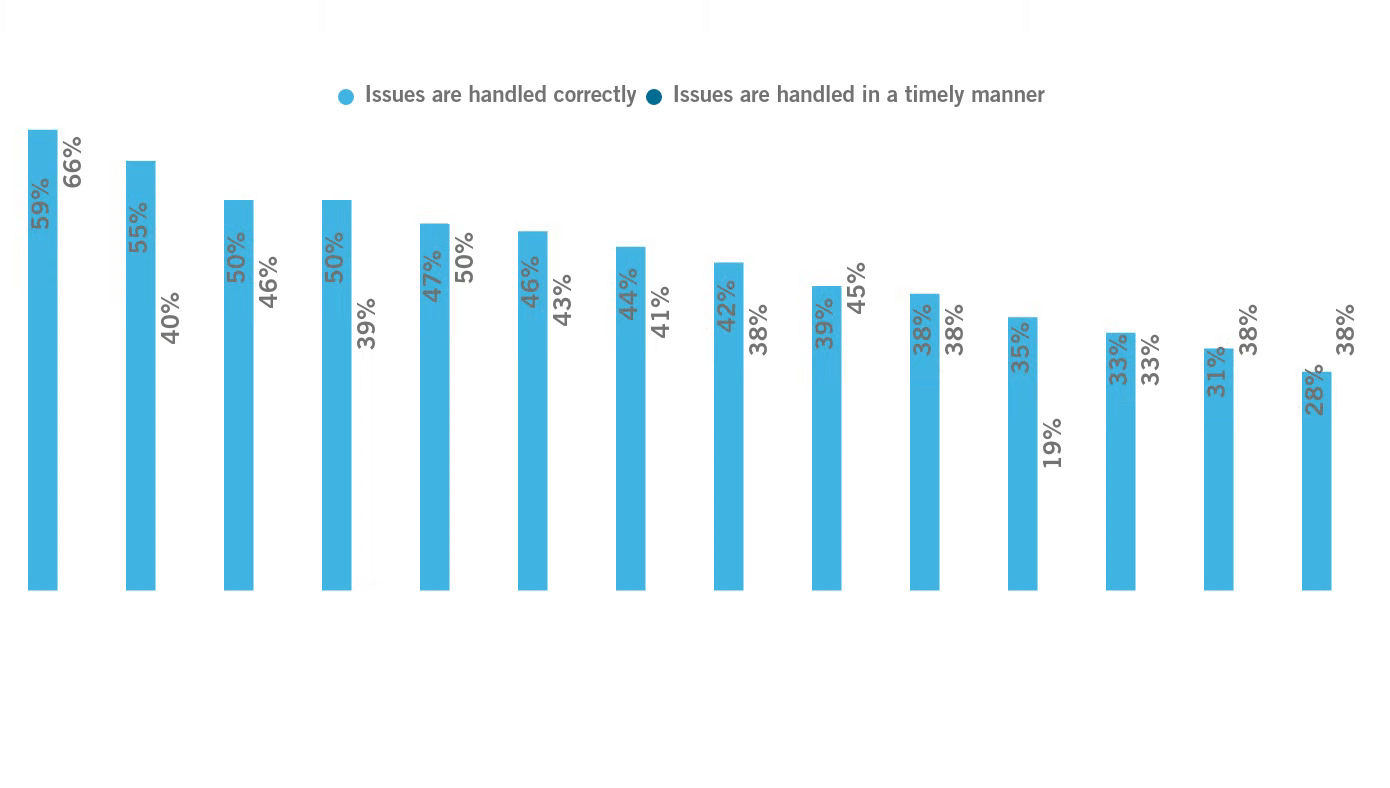
MAKING IT RIGHT: THE IMPORTANCE OF ISSUE RESOLUTION TO E-COMMERCE CONSUMERS
by Jeremy Cochran & Jaswant Singh
As E-commerce grows, so do consumers’ expectations
It is vital for companies to get the online shopping experience right to retain their customers. E-commerce has steadily become a larger component of consumers’ purchasing for decades – from 1% of all retail sales in 2000 to 13% in 2020 and growing. The COVID-19 pandemic accelerated this growth in the last two years. Furthermore, with the shutdown of brick-and-mortar stores during the early stages of the pandemic, the online presence for brands and retailers became the only way consumers could interact with them.
Even with in-store shopping going up as the pandemic lessens, consumers are still going to be shopping online. The Burke Omnibus Tracking Program results show that consumers plan to shop online as often, if not more, over the next year. Younger consumers, already digital natives, plan to shop online more in the future, while older consumers plan to maintain their current shopping habits.[1]
Consumers will keep shopping online, especially Gen Z and Millennials
% of consumers saying they will shop online more/the same/less often one year in the future

While online shopping has improved over the years (it’s easier to find what you need and compare specs, for example) there is still room for companies to continue to improve. Our research indicates there is one key element companies need to get just right to impress and retain customers.
Resolving issues is most important for e-commerce consumers, more than speed of shopping and ease of buying
Issue resolution and product information are most important aspects of buying online
% saying element is important in online shopping, Top 3 Box

Resolving issues quickly and correctly is most important to e-commerce consumers; it is also more closely correlated with consumers’ overall satisfaction with their purchase than any other aspect of the e-commerce experience.[2] The focus on issue resolution likely stems from the strain on digital platforms and the delivery infrastructure due to COVID-19. Indeed, in 2021, 64% of North American consumers struggled with an online transaction in the last six months[3]; given the volume of transactions during that year, it’s possible the rate is even higher. Delivery issues are also common – 76% of consumers report at least one late delivery in the past year.[4]
While the difference isn’t large, consumers feel that finding the right information quickly is less important than getting issues resolved; in essence, what happens after the purchase matters more than the purchasing itself. One explanation for this is the “peak-end rule” developed by Barbara Fredrickson and Daniel Kahneman[5], which asserts that people judge an experience by the most emotionally impactful moments (“peaks”) and the final moments (“ends”). A classic example is travel: even the most enjoyable trip that ends with a cancelled flight on the way home might be remembered in a less positive light. Applied to e-commerce, consumers may forget the relatively uneventful process of buying products and only remember the end: whether the product arrived on time and without issue.
Interestingly, alignment with a company’s values is also seen as less important by consumers and is least correlated with overall purchase satisfaction. This contradicts recent evidence showing that a majority of consumers believe buying from companies that align with their values is important.[6] It is possible that the importance of value alignment may come into play in overall brand preference rather than in the e-commerce experience itself.
So how are companies performing on this important aspect of the e-commerce experience?
Despite the massive increase in demand due to COVID-19, e-commerce platforms seem to have met the moment. Our research shows that, in general, consumers are generally satisfied with their e-commerce purchases and say companies are exceeding expectations on performance.
According to shoppers, companies are performing well on e-commerce, but issue resolution can improve
Importance (% T3B) and company performance (% T3B)

However, consumers see room for improvement on issue resolution. While performance exceeds importance for other elements of the shopping experience, consumers see companies as only just meeting their needs on issue resolution. And not all companies are performing equally. Consumers in the Burke Omnibus study rated top companies on their most recent online purchases and saw strong performance among some online-first companies (Chewy, eBay) and lower performance in companies with less experience in e-commerce (Kroger).
Consumers are generally more satisfied with online-heavy retailers on resolving issues
Consumer ratings on issue resolution by company of most recent online purchase, Top 2 Box %

One way to “stick the landing” in e-commerce? Show generosity
In addition to resolving e-commerce issues quickly and effectively, an additional element can come into play to help improve the online shopping experience: generosity. Chewy, the online-exclusive pet supplies store, performed the highest on nearly all aspects of the e-commerce experience in the study.
What stands out in online reviews, however, is how much Chewy’s customers rave about their generous return policy; when issues arise, the company often refunds customers immediately and encourages customers to donate the unneeded product to local animal shelters. The resonance they develop with consumers, as well as meeting their e-commerce needs has helped them grow rapidly over the past few years, with revenue growing from $3.9 billion in fiscal Q1 of 2019 to $7.7 billion in 2021.[7]
“I am so impressed by this company! In addition to great selection, prices and quick delivery their customer service is above and beyond. Recently one of our pets passed away. I had just ordered food and wanted to return it. They refunded me and said I could [just] donate it. On top of that they sent a floral bouquet to my home expressing sympathy for our loss. Such a nice touch, something you do not see in many companies anymore.” Chewy Reviewer[8]
The bottom line, companies can keep e-commerce consumers satisfied by maintaining an easy shopping experience and quickly addressing and resolving issues
Overall, e-commerce platforms seem to meet consumers’ expectations on making their sites easy to navigate and compare products, getting the right information to decide, and getting delivery or pickup options that work best for them. However, companies have some room for improvement on quickly addressing and resolving issues that arise. Companies that excel at e-commerce have efficient procedures for dealing with problems along with excellent customer service. Having an easy and friendly issue resolution process for online orders can help consumers feel connected to the company. Strategies centered around unexpected delight, like Chewy’s generous return policy, may present an opportunity for companies to stand out for the way they resolve issues.
Key Findings:
- Resolving issues quickly and effectively is the most important aspect of the e-commerce experience for consumers.
- E-commerce platforms are exceeding expectations on site navigation, comparing products, and other pre-sale elements, but need continued progress on resolving issues.
- Companies excelling at e-commerce build connections with their customers by handling issues quickly and generously
- Focusing on streamlining issue resolution while maintaining an easy-to-use site can help companies “win” on e-commerce.




 Embracing her thirst for knowledge,
Embracing her thirst for knowledge, 




